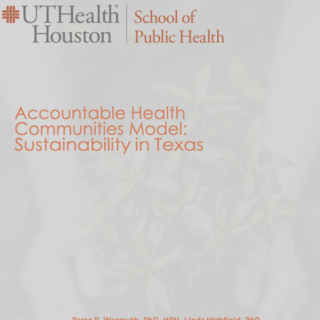From 2017-2023, the Centers for Medicare & Medicaid Services Innovation Center implemented the Accountable Health Communities (AHC) Model in 28 Bridge Organizations, or hubs, across the United States. The AHC Model aimed to test whether addressing the health-related social needs (HRSN) of Medicare and Medicaid beneficiaries could reduce frequent Emergency Department (ED) utilization and cost of healthcare delivery.
Texas was the only state in the US to have three AHC Model Bridge Organizations. This placed Texas in the unique position of being able to evaluate the implementation and
subsequent sustainability of the Model in three large, diverse geographical locations, all serving safety-net patient populations.
Over the course of our evaluation, we conducted interviews and focus groups with implementors of the AHC Model in Dallas, TX, Houston, TX, and San Antonio, TX. We partnered with Bridge Organization staff, health system front-line implementers, middle
managers, leadership, and community-based organization (CBO) leadership and staff to gain comprehensive perspectives of the Model’s activities.
The objective of this evaluation project was to assess elements of strengthening
peer AHC navigation (SPAN) that the three Texas AHC sites are sustaining, scaling or adapting to inform future delivery of social needs services.
We used a qualitative natural experiment approach to assess and evaluate post-model changes in implementation (planned and unplanned adaptations),sustainability, fidelity, ongoing technical assistance needs and scaling (expansion) of AHC or AHC-like (social needs) activities in Texas using the six AHC Model essential elements from SPAN: 1) workforce development and training, 2) clinical delivery site staff and leadership engagement, 3) patient navigation, 4) advisory boards and community alignment, 5) data systems, and 6) quality assurance.
